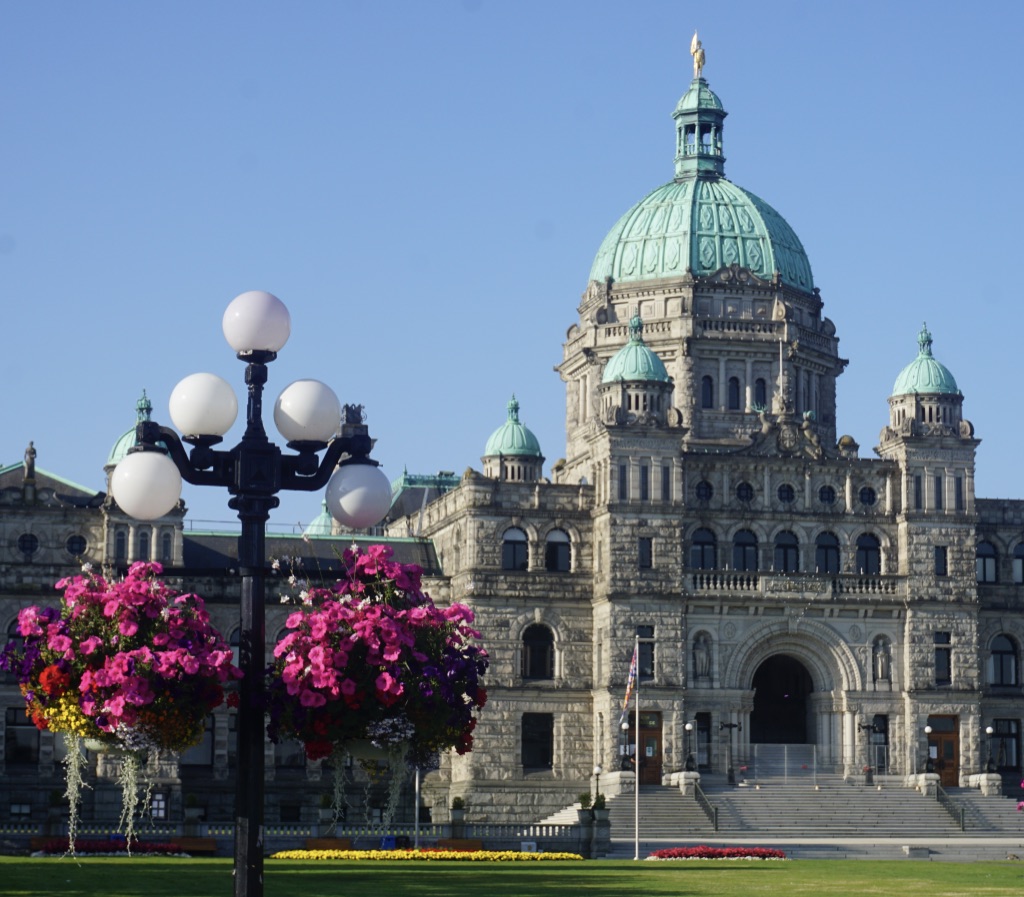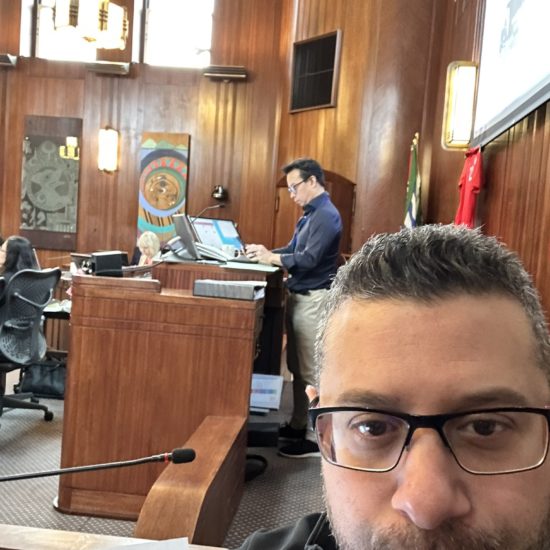
Bob Mackin
B.C.’s Legislative Assembly wants a B.C. Supreme Court judge to throw out a Labour Relations Board (LRB) ruling that opens the door to a police union at the Parliament Buildings.

Ed Illi (LinkedIn)
During the last week of April in Victoria, Justice Bruce Ellwood heard arguments over lawyer Marcia McNeil’s petition to the court seeking a declaration that parliamentary privilege precludes LRB jurisdiction at the seat of government.
In 2019, special provincial constables working for the Legislative Assembly Protective Services (LAPS) division of the Office of the Sergeant-at-Arms formed the Legislative Assembly Protective Services Association (LAPSA) and applied for Labour Code certification.
LAPSA and the all-party Legislative Assembly Management Committee (LAMC) both agreed to put the application on hold while they negotiated a collective agreement. But talks broke off and LAPSA resumed the certification bid in May 2020. Five of the eight appointees to LAMC are NDP members.
Edward Illi, who was elected president of the union, was put on administrative leave in August 2020 and fired in December 2020, just four days before the LRB agreed that parliamentary privilege applied.
At the start of February 2021, union members voted to dissolve the association. Illi filed an application with the LRB a month later, challenging the decision to fire him. His unfair labour practice complaint under the Labour Code alleged anti-union animus and lack of proper cause. He also filed an application for standing in the application for reconsideration of the original LRB decision.
“The Legislative Assembly took the position that Mr. Illi should not be granted standing to pursue the union’s application, that the matter was now moot and that the original decision was correct in law,” said McNeil’s January 2022 filing on behalf of the Legislative Assembly.
But, in November 2021, an LRB tribunal granted Illi standing and set aside the original decision by declaring parliamentary privilege did not preclude the application.
According to Illi’s response to the petition, the special constables are appointed under the Police Act and subject to the jurisdiction of the Independent Investigations Office. Any disciplinary investigations are reported to the Office of the Police Complaint Commissioner annually.

Marcia McNeil (pcmlawyers.ca)
What’s more, parliamentary privilege did not stop counterparts elsewhere from forming unions at Quebec’s National Assembly, the Alberta Legislature and the Senate of Canada.
“The House of Commons Security Services Employees Association has a certification issued by the Public Service Labour Relations Board to represent employees of the House of Commons Protective Services Group in Ottawa,” said Illi’s March 2022 response.
The LRB ruled in late 2021 that applying the code to special provincial constables would not impede the Legislative Assembly’s ability to carry on its constitutional functions.
The code’s provisions, it said, ensure that the constables’ role “in protecting the security, safety, and orderliness of the precinct, necessary for the constitutional functioning of the Legislative Assembly, would be maintained even in the event of a lawful strike.”
The decision referred to the Supreme Court of Canada’s 2018 ruling in the Chagnon case, that Quebec’s speaker, officially known as the “president,” could not use parliamentary privilege to avoid the grievances of three fired security guards.
“Although the president is entitled to exercise his management rights and dismiss security guards for a just and sufficient cause, parliamentary privilege does not insulate the president’s decision from review under the labour regime to which the guards are subject,” the majority of judges decided.
The Attorney General of B.C. (AGBC) also filed a response, on March 1, arguing that the Legislative Assembly should not be prevented from claiming immunity based on parliamentary privilege.
“The AGBC disagrees with the petitioner that the LRB erred by considering the special provincial constables’ Charter freedom of association as part of its consideration of the scope of the petitioner’s parliamentary privilege,” it said. “The AGBC disagrees with the respondent, Mr. Illi’s argument that the Legislative Assembly cannot claim parliamentary privilege against the operation of the Code because it is its own legislation.”
In January 2020, Alan Mullen, chief of staff to then-Speaker Darryl Plecas, submitted a report to LAMC that recommended saving $1 million a year by transforming LAPS into a security department.
The report said LAPS had 38 uniformed special constables, who are armed with pistols, 26 sessional officers and seven unarmed civilian screeners. The force with jurisdiction over just 5.9 hectares near Victoria’s Inner Harbour cost $5 million of the $5.7 million sergeant-at-arms budget in 2018-2019, more than what Central Saanich spent on its police department.
In his final report as speaker in December 2020, Plecas said a unionized LAPS “could provide important protections, but might also make subsequent departmental restructuring more complicated.”
He had earlier arranged for criminology professor Nahanni Pollard and former Vancouver Police deputy chief Doug LePard to review Mullen’s recommendations. LAMC has not published their report.
Support theBreaker.news for as low as $2 a month on Patreon. Find out how. Click here.











